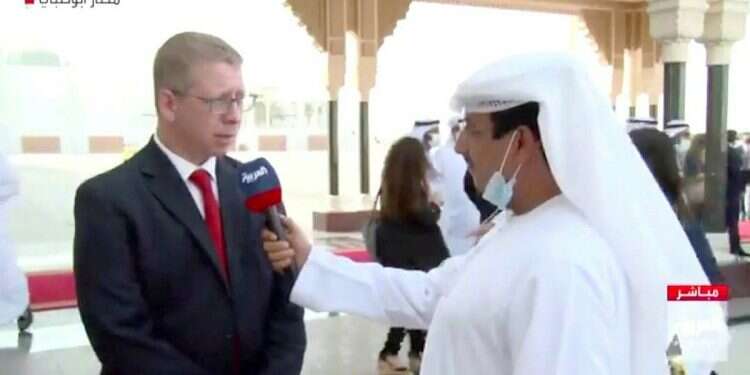"The region is changing. We saw this change with our own eyes during our historic visit," Ofir Gendelman, Prime Minister Benjamin Netanyahu's spokesman in Arabic, said of the Israeli delegation's visit to the United Arab Emirates this week.
As someone with 20 years of experience with the Arab media under his belt, with hundreds of thousands of online followers from the Arab world, Gendelman has certain that Arab social media networks greatly contributed to the diplomatic breakthrough with the UAE.
Follow Israel Hayom on Facebook and Twitter
"Without the [social media] networks it probably wouldn't have happened," he told Israel Hayom aboard the historic Flight LY972 from Abu Dhabi to Tel Aviv.
Q: What happened in terms of Arab public opinion?
"There's no question that social media sites in the Arab world are much freer than the traditional media outlets, which must adhere to certain government positions. On social media, you can see more authentic views and identify changes in atmosphere."
Q: What is the connection, then, between social media sites and the result?
"In the Arab world, there's tremendous interest in Israel, contrary to the apathy that exists in Israel toward what is going on in the Middle East. They want to know what we look like, and what we do and think."
Q: Tell me about the moment you experienced the power of social media.
"Here [in the UAE], during the visit, immediately upon landing and leaving the plane, people were enthusiastically waving hello at me, as if they knew me. At the hotel, too, there were people who recognized me, even though I'd never met them before."
Q: You said they want to know about us, while we aren't curious about them. What in your opinion needs to happen for that to change?
"I think that every Israeli needs to know Arabic and that this is the most important subject at school. Knowledge of the language is the key."
Subscribe to Israel Hayom's daily newsletter and never miss our top stories!




